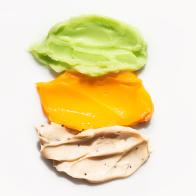Parenting Win of the Week: What to Know About Pediatric Hepatitis
Here's an expert's take on the mysterious outbreak.


Rebecca Nelson
As if we don’t have enough to worry about as parents, a mysterious strain of pediatric hepatitis has been going around and nobody seems to know the cause. Since there isn’t a ton of information out there, we spoke with Dr. Elizabeth Fagan, MD, an independent hepatologist consultant, on what things we need to be aware of with this disease. Here’s what she had to say:
Interview edited for length and clarity
What is pediatric hepatitis? Are we talking A, B or C — or is it different entirely?
Hepatitis means inflammation of the liver regardless of cause. Hepatitis in children (pediatric hepatitis) can be caused by many different acute and chronic conditions as well as infectious agents.
The current reports of cases, commencing around October 2021 and being investigated by the CDC and WHO, are of unknown cause/s.
Known viruses causing hepatitis in children and adults include viruses A, B, C, D (with B) and E. Several other viruses (CMV, EBV, etc.) as well as other infectious agents (certain bacteria, parasites, etc.) also occasionally can cause hepatitis in children and adults. So far, the reported cases show no evidence implicating these viruses known to cause hepatitis.
What are the primary symptoms?
Symptoms vary. However, common symptoms are gastrointestinal (e.g., nausea. vomiting, diarrhea) as well as malaise and fever in some (although not all) cases.
Of special note is the development of jaundice in many of the severe cases (i.e., yellowing of the eyes, darkening of urine and lightening in color of the stool, as well as a yellow tinge to the skin color).
If your child has suspected symptoms should they see their pediatrician or someone else?
Gastrointestinal symptoms (gastroenteritis) are common in children; however, if symptoms persist beyond 48 hours, contact your pediatrician. If you suspect jaundice, contact your pediatrician without delay.
Is it contagious?
Since the cause/s are unknown, we do not know if any of the cases reported are potentially infectious. However, so far, the illness does not seem to be spreading (clustering) within a family or among close contacts.
Can you be vaccinated against this form of hepatitis?
Since the cause/s are unknown, there are no known vaccines or specific treatments.
Do we know what is causing this outbreak?
We do not know the cause (or causes). So far, the children seem to have been healthy prior to developing hepatitis.
Adenovirus 41F (a member of a large adenovirus family) has been detected in many (not all) of the severely ill children. Adenovirus infections are common in children and are responsible for some cases of gastroenteritis, the common cold and other self-limiting illnesses.
Although some adenoviruses can cause hepatitis, this is a very uncommon occurrence that is typically documented in people who are severely immunocompromised (e.g., stem cell transplant recipients).
We do not yet know whether adenovirus 41F is the culprit in all the cases reported so far; this requires further investigation.
Is there anything we can do to prevent it?
Prevention is difficult because we do not know the cause/s. However, as a general rule, health authorities are recommending diligent hygiene (e.g., washing hands frequently, avoiding direct contact with body fluids like urine and stoo]).
What about treating it?
There are also no specific treatments because the cause/s are unknown. General care includes keeping the child hydrated with fluids and nourished.
Although alarming, these cases remain rare compared with the large number of children who develop common, self-limiting gastrointestinal and ‘flu-like’ illnesses. Parents and caregivers should remain vigilant if the typical illnesses in a child do not settle down within 48 hours.
Contact your pediatrician without delay with any worsening of symptoms and especially if you believe that jaundice is developing.
YOU MIGHT ALSO LIKE:
































































